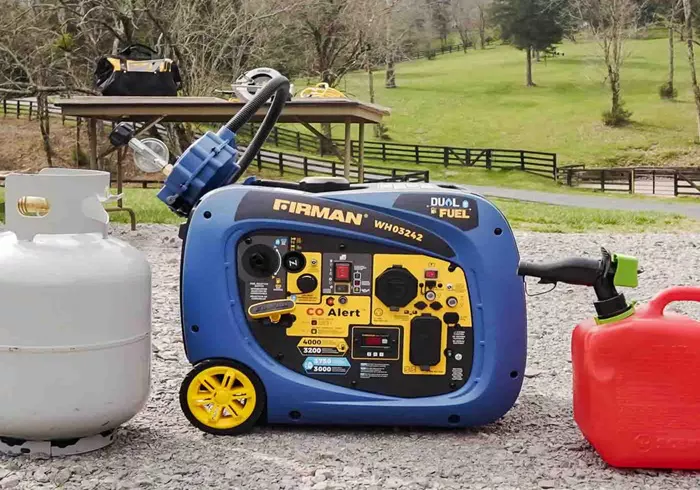Choosing the right size home generator to run your air conditioning (AC) is essential to ensure comfort during power outages. Air conditioners require significant power, and using a generator that is too small can cause damage or fail to keep your AC running smoothly. This guide will help you understand how to select the proper generator size based on your AC unit’s power needs and other home generator uses.
Why Home Generators Matter for Running AC
Home generators provide backup power when the main electrical supply fails. They are especially valuable in areas prone to storms, blackouts, or power interruptions. Since air conditioners consume large amounts of electricity, not every generator can handle their load. Knowing the correct generator size ensures your AC can operate safely without overloading the system.
Basic Power Requirements of Air Conditioners
Air conditioners are rated in tons, which correlates to their cooling capacity. One ton of AC typically equals about 12,000 BTUs per hour. Power consumption varies by the unit’s size and efficiency but usually falls in these ranges:
- Small window units: 500 to 1,500 watts
- Central AC systems (1.5 to 5 tons): 2,000 to 5,000 watts running power
- Startup surge power: 2 to 3 times the running watts
The surge power is needed because AC compressors require extra energy when starting up. A generator must handle this surge without tripping.
Calculating the Generator Size Needed for Your AC
To find the correct generator size, follow these steps:
- Find your AC unit’s running wattage. Check the label or the manual, or use an online calculator.
- Multiply the running watts by 2 or 3 to estimate the surge wattage.
- Add the wattage of other appliances you plan to run simultaneously (lights, fridge, fans, etc.).
- Choose a generator that meets or exceeds this total wattage.
For example, if your AC runs at 3,000 watts and has a startup surge of 6,000 watts, and you want to run other appliances totaling 1,000 watts, the generator should supply at least 7,000 watts to operate safely.
Common Home Generator Sizes for Air Conditioning
Here are common generator sizes matched to typical AC unit sizes:
- 3,000 to 5,000 watts: Suitable for small window or portable AC units and a few other small appliances.
- 7,000 to 10,000 watts: Ideal for central AC units up to 3 tons and essential household circuits.
- 12,000 to 20,000 watts: Needed for larger central AC units (3 to 5 tons) and multiple household appliances.
- 20,000+ watts: For whole-house generators supporting large homes with multiple AC units and high electrical loads.
Types of Home Generators and Their Suitability for AC
There are several types of home generators, each with pros and cons when it comes to running AC units:
Portable Generators
Portable generators are mobile and often gasoline-powered. They range from 2,000 to 10,000 watts. They are a good option for running a single AC unit or small essential loads during a blackout. However, their limited power means they are not suitable for whole-house air conditioning or multiple AC units.
Standby Generators
Standby generators are permanently installed and connect directly to your home’s electrical system. Powered by natural gas or propane, they provide automatic backup power during outages. Their capacity ranges widely, often between 7,000 to 24,000 watts or more, making them suitable for running central AC systems and whole-home power needs.
Inverter Generators
Inverter generators provide clean, stable power, which is good for sensitive electronics and modern AC units with electronic controls. They are typically quieter and more fuel-efficient but usually produce less power than standby units, so consider their size carefully if your AC unit has high starting wattage.
Additional Home Generators Uses Besides Running AC
While air conditioning is a major concern, home generators uses also include powering refrigerators, lighting, heating systems, medical equipment, and entertainment devices. When sizing your generator, consider all devices you want to keep operational during an outage, not just your AC.
Tips for Choosing the Right Generator for Your AC
- Check the AC unit’s specification label or manual for power requirements.
- Account for surge wattage during compressor startup.
- Include other home appliances in your power calculations.
- Consult with a professional electrician or generator specialist to ensure safe and code-compliant installation.
- Consider fuel availability and run time – natural gas and propane standby generators can run longer without refueling than gasoline-powered portable units.
- Think about noise levels and placement, especially if you live in a noise-sensitive area.
Common Mistakes to Avoid When Selecting a Generator
- Choosing a generator based solely on running watts, ignoring surge wattage needs.
- Underestimating the total power needs by excluding other essential devices.
- Purchasing too small a generator and risking damage to appliances or generator overload.
- Ignoring fuel type and availability, which affects usability during long outages.
Conclusion
Choosing the right size home generator to run your AC unit is vital for comfort and safety during power outages. Understanding your AC’s power needs, including surge wattage, and factoring in other household loads ensures you pick a generator that delivers reliable power. Whether you opt for a portable, standby, or inverter generator, proper sizing and professional installation guarantee that your air conditioning and home stay cool and comfortable when it matters most.

